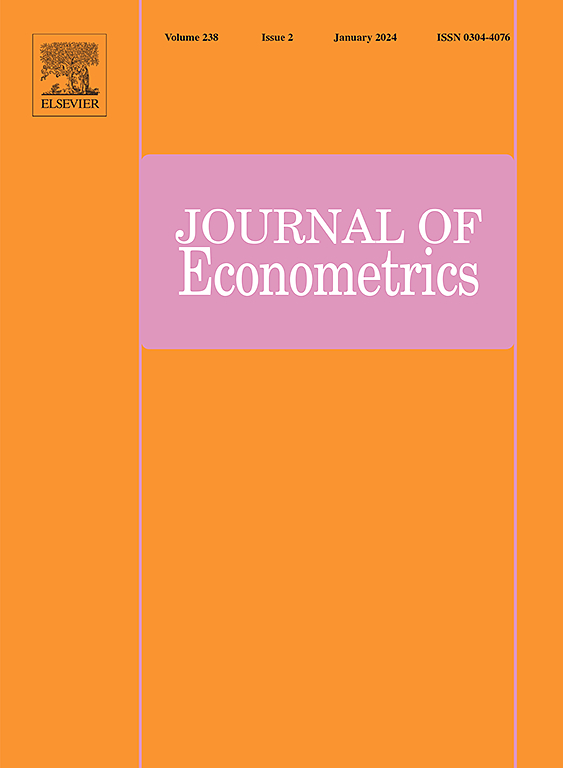大维度因子模型的Huber主成分分析
IF 4
3区 经济学
Q1 ECONOMICS
引用次数: 0
摘要
因子模型在经济学和金融学中得到了广泛的应用。然而,在统计分析中,宏观经济和金融数据的重尾性往往被忽视。为了解决这个问题,我们提出了一种通过最小化Huber损失函数来估计因子负荷和分数的鲁棒方法,该方法的动机是传统主成分分析(PCA)和因子模型中约束最小二乘法之间的等效性。我们提供了两种使用不同惩罚形式的算法。第一种算法采用迭代Huber回归算法求解元素型Huber损耗最小化问题。第二种算法,我们称之为Huber PCA,最小化2-范数型Huber损失,并对加权样本协方差矩阵进行PCA。我们研究了基于元素的Huber损失函数的理论最小值,并证明当特征误差具有有界的秒矩时,它具有与传统PCA相同的收敛速度。我们还推导了它们在温和条件下的渐近分布。此外,我们提出了一个一致的模型选择标准,该标准依赖于秩最小化来稳健地估计因子的数量。我们通过大量的数值实验和一个真实的宏观经济数据示例展示了所提出的两种算法的优点。已经开发了一个名为“HDRFA”1的R包来进行所提出的稳健因子分析。本文章由计算机程序翻译,如有差异,请以英文原文为准。
Huber Principal Component Analysis for large-dimensional factor models
Factor models have been widely used in economics and finance. However, the heavy-tailed nature of macroeconomic and financial data is often neglected in statistical analysis. To address this issue, we propose a robust approach to estimate factor loadings and scores by minimizing the Huber loss function, which is motivated by the equivalence between conventional Principal Component Analysis (PCA) and the constrained least squares method in the factor model. We provide two algorithms that use different penalty forms. The first algorithm involves an element-wise-type Huber loss minimization, solved by an iterative Huber regression algorithm. The second algorithm, which we refer to as Huber PCA, minimizes the -norm-type Huber loss and performs PCA on the weighted sample covariance matrix. We examine the theoretical minimizer of the element-wise Huber loss function and demonstrate that it has the same convergence rate as conventional PCA when the idiosyncratic errors have bounded second moments. We also derive their asymptotic distributions under mild conditions. Moreover, we suggest a consistent model selection criterion that relies on rank minimization to estimate the number of factors robustly. We showcase the benefits of the proposed two algorithms through extensive numerical experiments and a real macroeconomic data example. An R package named “HDRFA” 1 has been developed to conduct the proposed robust factor analysis.
求助全文
通过发布文献求助,成功后即可免费获取论文全文。
去求助
来源期刊

Journal of Econometrics
社会科学-数学跨学科应用
CiteScore
8.60
自引率
1.60%
发文量
220
审稿时长
3-8 weeks
期刊介绍:
The Journal of Econometrics serves as an outlet for important, high quality, new research in both theoretical and applied econometrics. The scope of the Journal includes papers dealing with identification, estimation, testing, decision, and prediction issues encountered in economic research. Classical Bayesian statistics, and machine learning methods, are decidedly within the range of the Journal''s interests. The Annals of Econometrics is a supplement to the Journal of Econometrics.
 求助内容:
求助内容: 应助结果提醒方式:
应助结果提醒方式:


